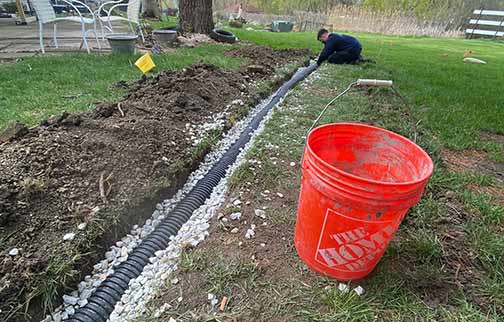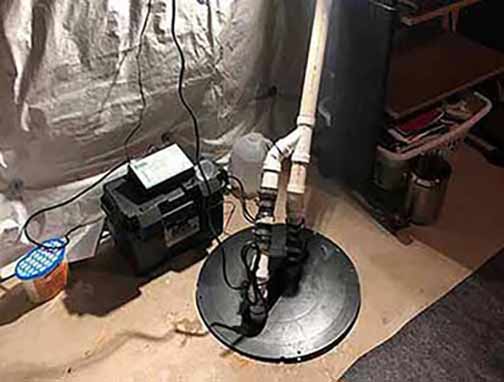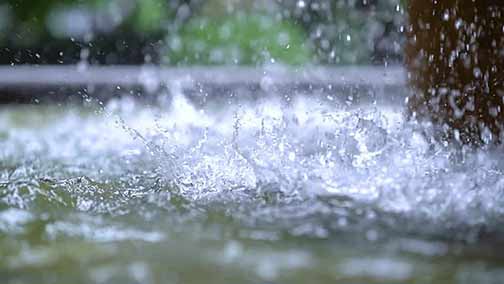Residential Flood Control Systems: Protecting Chicagoland from Flooding
Flooding is a significant concern for homeowners in Chicagoland, where heavy rainfall and changing weather patterns pose a constant threat. To mitigate the risks associated with flooding, many residents are turning to residential flood control systems. These systems not only help prevent water damage to homes but also protect valuable possessions and provide peace of mind.
The Growing Need for Flood Control in Chicagoland
Chicagoland, encompassing the city of Chicago and its surrounding suburbs, is prone to flooding due to its unique topography and weather patterns. The region experiences heavy rainfall throughout the year, which often overwhelms the existing drainage infrastructure. Additionally, climate change has led to more frequent and intense storms, exacerbating the risk of flooding.
Traditionally, local municipalities have relied on stormwater management systems to minimize flooding. However, these systems are designed for large-scale water runoff and do not address the specific needs of individual homeowners. This is where residential flood control systems come into play.
Understanding Residential Flood Control Systems
Residential flood control systems are designed to safeguard homes and properties from water damage caused by flooding. These systems employ a range of techniques and technologies to divert excess water away from residential areas.
One popular type of flood control system is the installation of a flood control valve. These valves are typically installed in the main sewer line entering the property and automatically close off the flow of water when it reaches a certain level. By preventing water from entering the home through sewer connections, these valves can effectively prevent basement flooding.
Another commonly used flood control system is the installation of a sump pump. Sump pumps are installed in basements and crawl spaces to remove excess water that accumulates during storms or heavy rainfall. When water levels rise, the sump pump activates and pumps the water out of the house, safely redirecting it away from the property.
Additionally, some homeowners invest in landscaping modifications that promote proper drainage. These modifications may include the installation of French drainage tile, permeable paving, or rain gardens, all of which help collect and redirect water away from the home.

The Benefits of Residential Flood Control Systems
By investing in residential flood control systems, homeowners in Chicagoland can enjoy numerous benefits:
- Protection from Water Damage: The primary benefit of flood control systems is the protection they provide against water damage. Basement flooding can lead to extensive damage to walls, flooring, furniture, and electrical systems. Flood control systems help prevent this damage, saving homeowners from the costly and time-consuming process of water damage restoration.
- Protection of Valuable Possessions: Many homeowners store valuable possessions such as family heirlooms, important documents, and electronics in their basements. A flood control system ensures that these possessions remain safe and dry, even during heavy rainfall or flooding events.
- Peace of Mind: Living in an area prone to flooding can be stressful. By installing a flood control system, homeowners gain peace of mind knowing that their homes are protected, even during severe weather events.
- Increased Property Value: Properties equipped with flood control systems are highly sought after in flood-prone areas. Installing such a system can significantly increase the resale value of a home, making it a worthwhile investment for homeowners.
- Environmentally Friendly Options: Some flood control systems, such as rain gardens and permeable paving, offer environmentally friendly solutions by allowing rainwater to be absorbed into the ground rather than adding to the burden of municipal drainage systems.
Choosing the Right Flood Control System
When selecting a flood control system for their homes, homeowners in Chicagoland should consider several factors:
- Property Assessment: Conducting a thorough assessment of the property is crucial to determine the most effective flood control system. Factors to consider include the property’s elevation, proximity to water sources, and existing drainage infrastructure.
- Budget: Different flood control systems vary in cost, so homeowners should set a realistic budget before making a decision. It’s important to strike a balance between the level of protection required and the available budget.
- Expert Advice: Seeking the guidance of professionals in flood control systems is highly recommended. These experts can assess the property and provide tailored recommendations based on the specific needs and circumstances of the homeowner.
- Quality and Reliability: When investing in a flood control system, homeowners should prioritize quality and reliability. Choosing reputable suppliers and experienced contractors ensures that the system will effectively protect the property for years to come.

The Role of Government and Community Initiatives
Addressing flood control in Chicagoland requires a collaborative effort between homeowners, local governments, and community organizations. Recognizing the importance of flood mitigation, both municipal and state governments have implemented initiatives to support homeowners in their flood control efforts.
Some municipalities offer financial incentives or grants to homeowners who install flood control systems. These incentives help offset the cost of installation, making flood control systems more accessible to a wider range of homeowners. Additionally, local governments conduct public awareness campaigns to educate residents about flood risks and the available flood control measures.
Community organizations and neighborhood associations also play a crucial role in promoting flood control in Chicagoland. These groups often organize workshops, seminars, and informational sessions to educate homeowners about the benefits of flood control systems and provide resources for installation and maintenance.
In Conclusion
As the risk of flooding continues to grow in Chicagoland, residential flood control systems offer homeowners an effective means of protecting their properties. These systems not only prevent water damage and safeguard valuable possessions but also provide peace of mind in times of severe weather events. By investing in flood control systems and taking advantage of government and community initiatives, homeowners can mitigate the risks associated with flooding and ensure the long-term safety and resilience of their homes.

